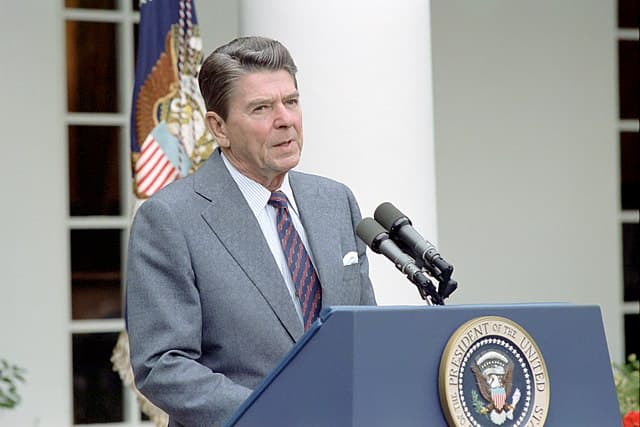A Reagan Moment as State Employees Quit on Youngkin
Like air traffic controllers 40 years ago, Virginia state employees have been reminded that they serve the people — and if they refuse to do so, they’re free to find jobs elsewhere.

The resignation of hundreds of Virginia state employees is emerging as a Reagan moment for Governor Youngkin. Like air traffic controllers 40 years ago, Virginia state employees have been reminded that they serve the people — and if they refuse to do so, they’re free to find jobs elsewhere.
On May 5, Mr. Youngkin announced that on July 5, the Old Dominion’s workforce would return to doing their jobs in person, face to face with the citizens who pay their salaries.
A tweet by a state senator, Ghazala Hashmi, summarized Democratic outrage over this. “Despite our best efforts,” he said, “Youngkin refused to reconsider his disastrous executive action and pressed forward, regardless of longstanding state policies for telework.”
Well, “longstanding state policies” are what the Republican governor has restored, which is why the state’s Department of Human Resource Management describes the reset as “consistent with pre-pandemic policies.”
This is just the status quo ante. As under Mr. Youngkin’s Democratic predecessor, DHRM still stipulates, “telework may be an option for certain eligible positions.”
The keyword is “eligible.” If the people’s representatives approve — supervisors or higher, depending on the number of remote days requested — an employee is free to work in Super Friends pajamas while eating cereal for dinner.
But the choice can’t be made by individuals at the expense of performing the hired task. “Close enough for government work” is a cliché, not a motto.
Those of us who have learned to stop worrying and love the couch during Covid-19 have two options if our company wants us back in cubicles: market our talents on LinkedIn or start a business and be our own boss.
Three-hundred Virginia employees chose options along those lines when the rules went back into effect. The state soldiers on with a smaller government until those positions need to be filled, if they ever do.
In the 1999 cult classic “Office Space,” Peter declares, “I don’t like my job, and I don’t think I’m gonna go anymore,” but few private sector employees have that option, so why should the people on our payroll?
Virginia law prohibits state employees from going on strike. Fortunately, they obeyed it, unlike the Professional Air Traffic Controllers Organization in 1981, which walked off the job in President Reagan’s first year.
In that case, each member of PATCO had sworn an oath not to “strike against the government of the United States or any agency thereof,” and yet that’s just what they did.
Although it was illegal, and they had been offered raises and benefits double those enjoyed by other federal employees, the union took air passengers hostage for a raise 17 times what they’d agreed to in previous negotiations.
Ensuring the smooth takeoff and landing of planes couldn’t wait 60 days, so Reagan gave the strikers 48 hours to abandon the picket lines they’d sworn never to walk and return to the control tower.
When the deadline passed, the nation moved on without 11,345 of them, and added a lifetime ban on federal employment to ensure they could never again use a government position to extort “We the people.”
This is often referred to as Reagan “firing” the controllers, but they chose to give up their jobs by not fulfilling the terms of employment, just as the Virginia 300 did. The choice was theirs.
Predictions of disaster, in ‘81 as now, came to nothing. Reagan’s refusal to cave avoided the specter of periodic airport strikes — say, on the busy Thanksgiving travel weekend — and greedy government unions were put on notice.
While many Democrats may think this heartless, no less a liberal lion than President Franklin Roosevelt called efforts like those of PATCO “unthinkable and intolerable.”
“[A] strike of public employees manifests nothing less than an intent on their part to prevent or obstruct the operations of government,” he said, “until their demands are satisfied.”
Public sector personnel work for us, not the other way around. We are their bosses, and if they don’t think we treat them right, I wish them well in their next jobs.
They can pick up their final check on the way out and enjoy Frankenberry or Froot Loops to their heart’s content. The work of the people will get done without them.

